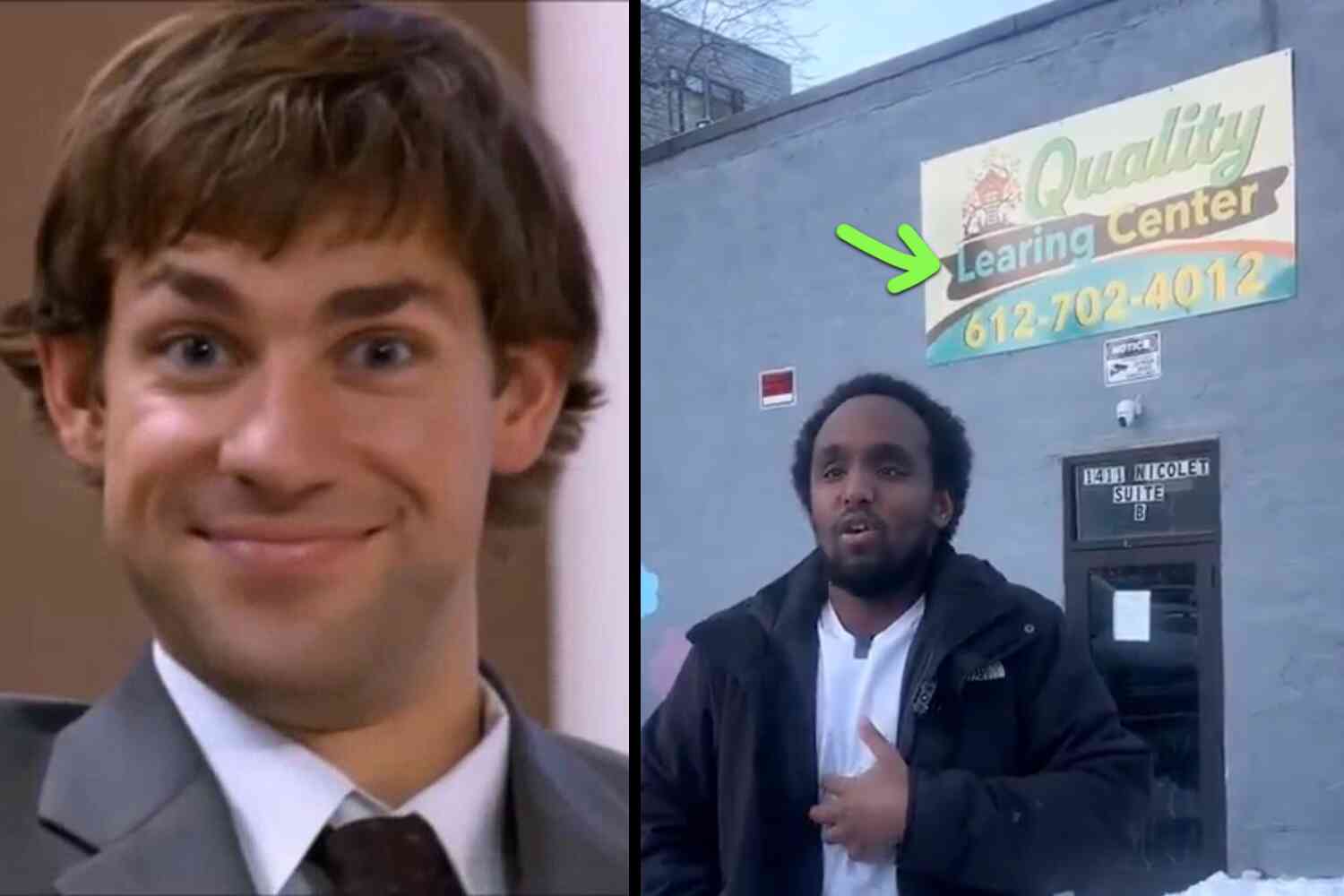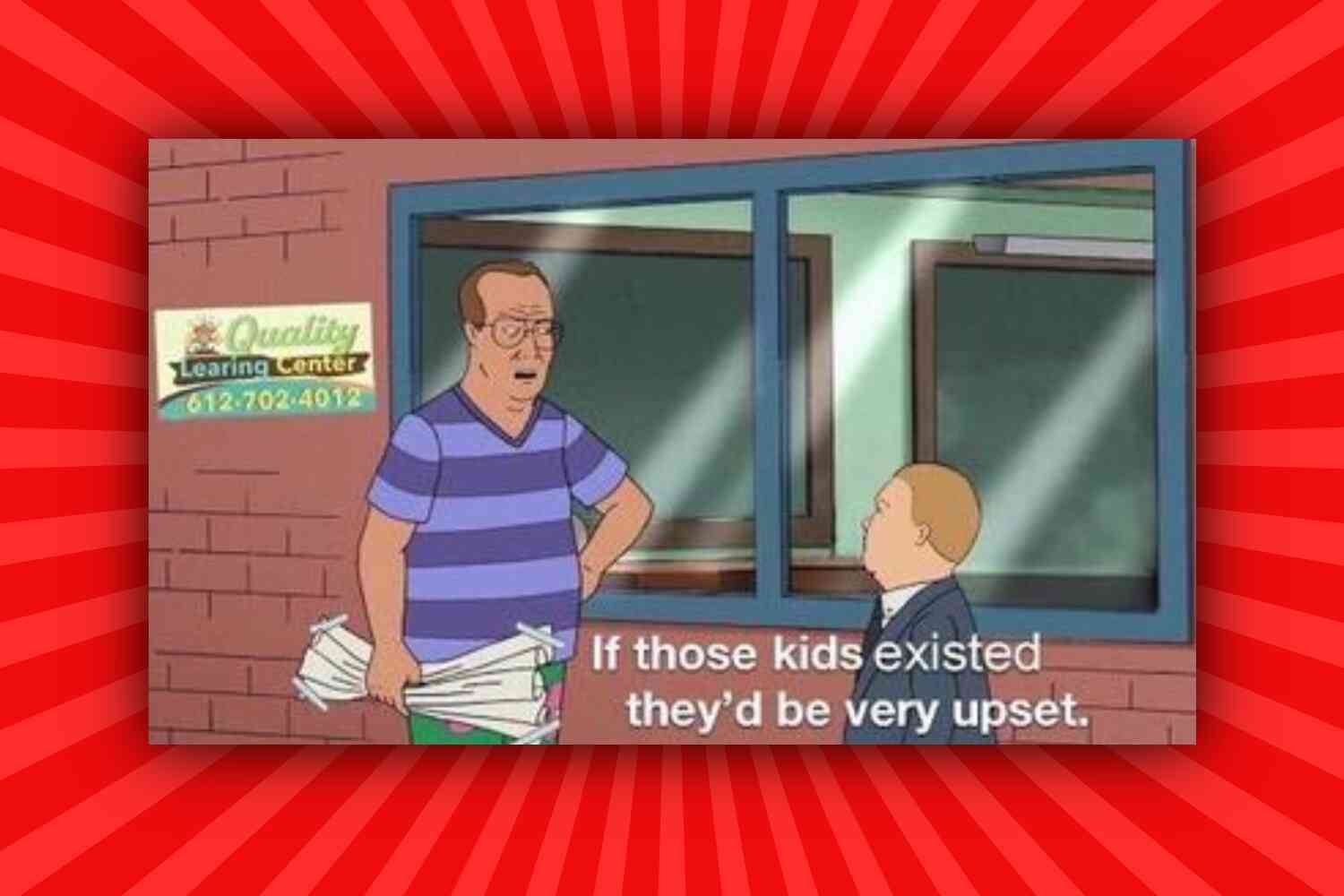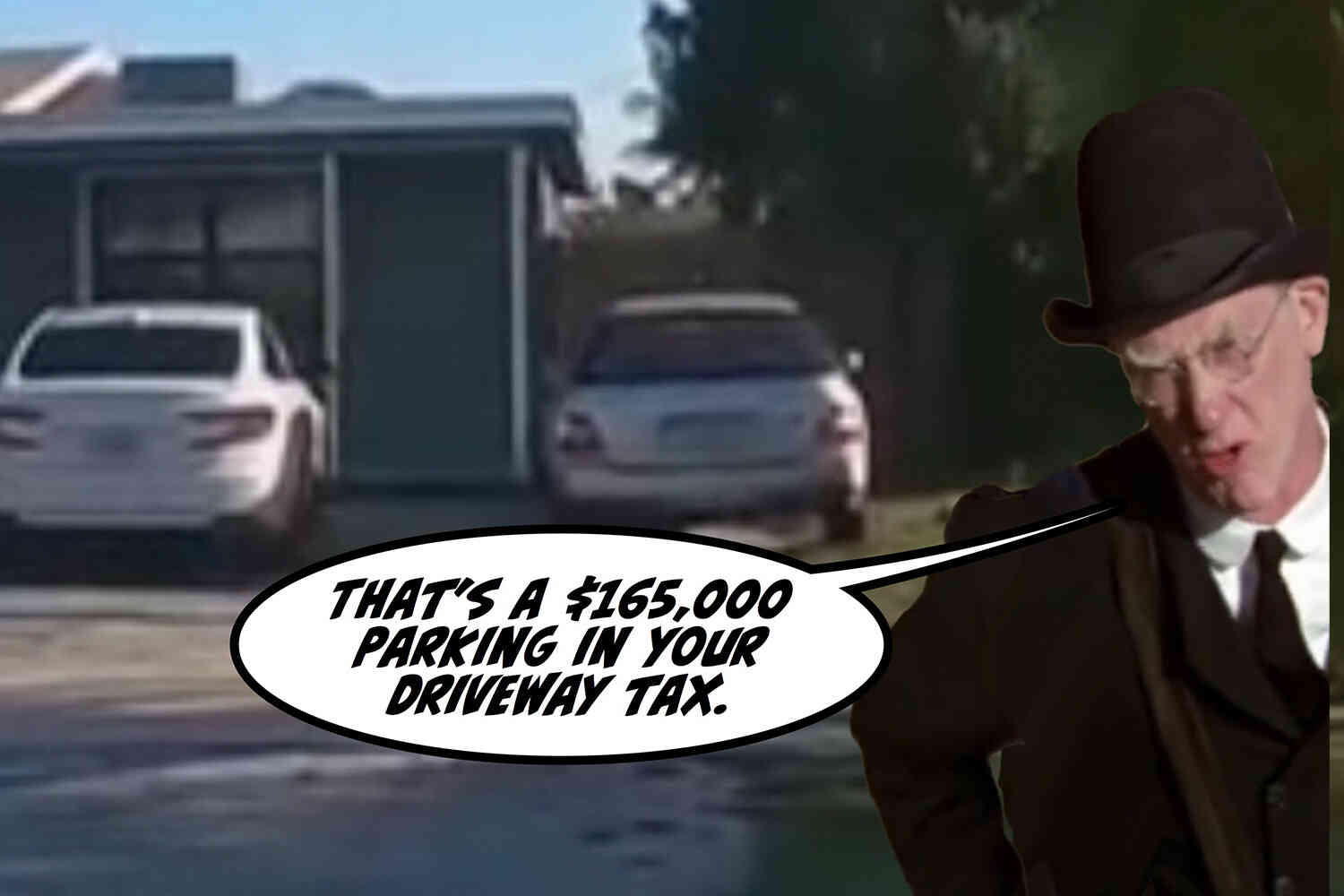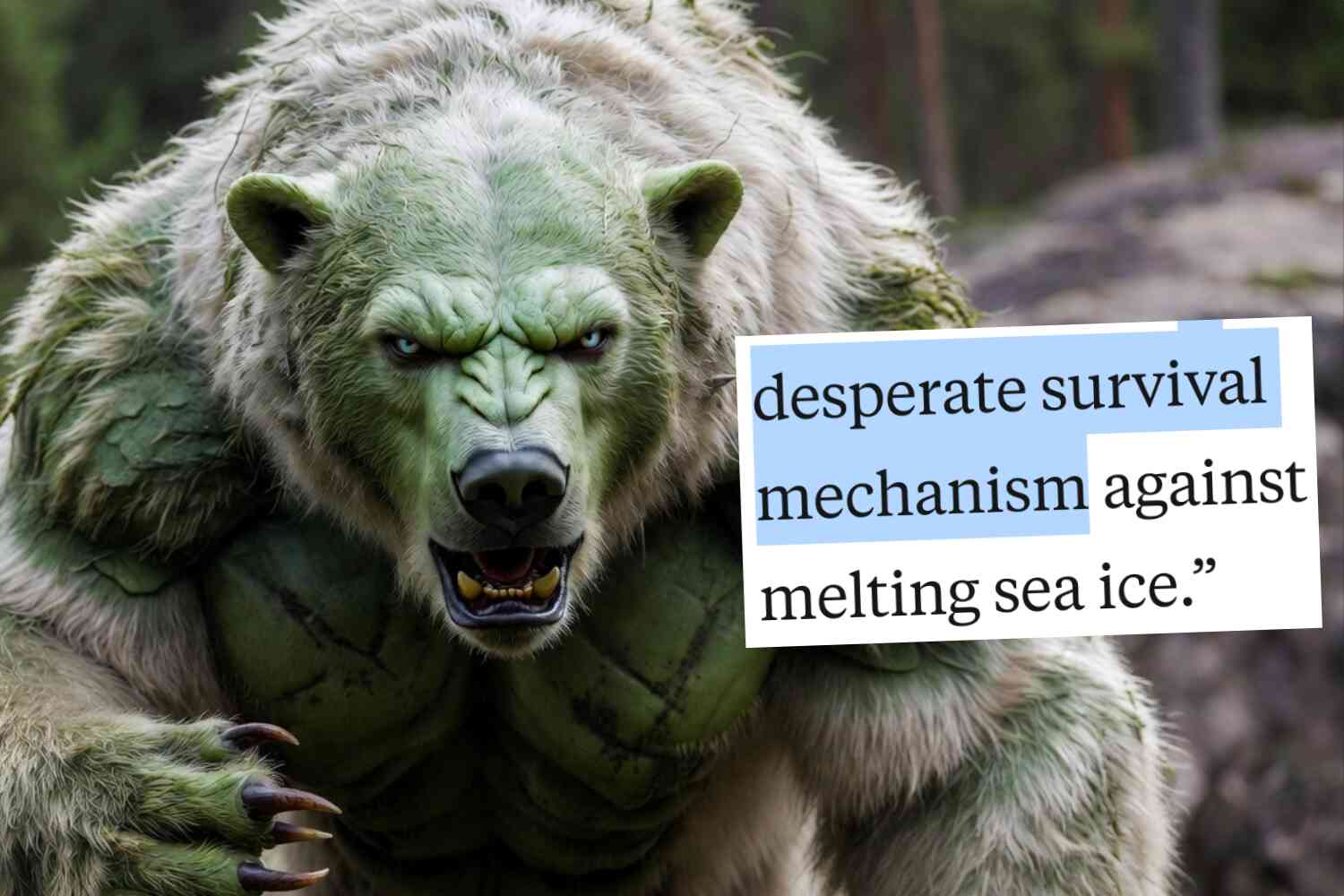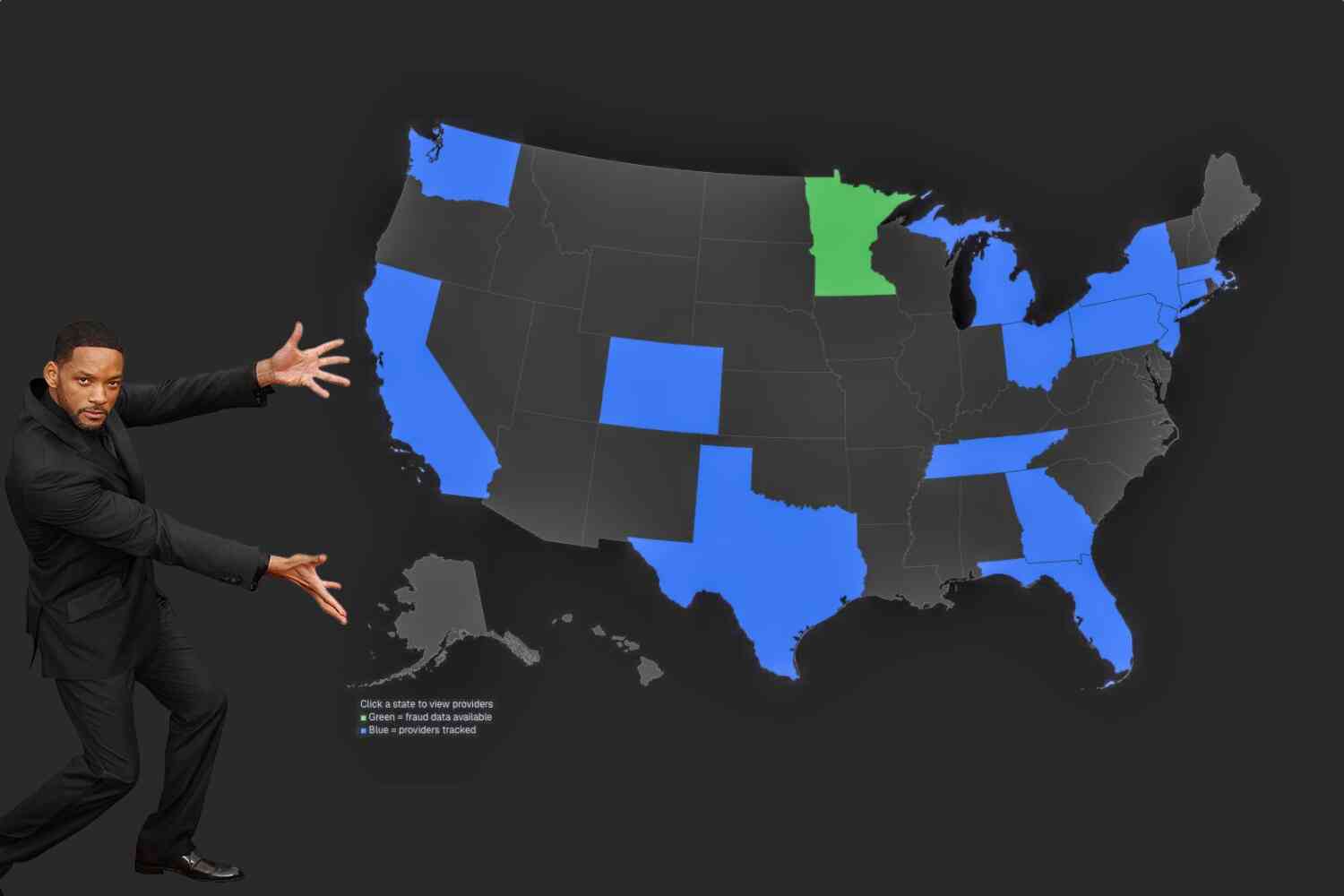The Washington Post likes nothing better than a juicy scandal involving racist white supremacists being all supremacisty, and if there aren't any, why, they'll just make one up!
And so, over the course of three days we have no fewer than six pieces in WaPo in which a thoroughly innocuous paean to small-town values is magically transformed into a racist pro-lynching white supremacist anthem.

To accomplish this feat of wizardry requires you go all-in, and did they ever.
This was all hands on deck swarm reporting. It's as if they were already making room on their shelves for their next Pulitzer.
Let's address these pieces in roughly the order they appeared.
The Message in ‘Try That in a Small Town' Is Clear
"The message."

Intentional or not,...
This right here tells you almost the entire story. "Intentional or not." This is the explicit abandonment of reality, stated plainly. It doesn't matter what the song is actually about, what matters is whatever historical baggage people want to append to it, the better to further their political agenda, the purpose of which is the never-ending accumulation of power.
Incidentally, author Francis Wilkinson is a,
"Bloomberg Opinion columnist covering U.S. politics and policy. Previously, he was an editor for the Week, a writer for Rolling Stone, a communications consultant and a political media strategist.
You will no doubt be surprised to learn that he was a political media strategist for Democrats - something the Bloomberg organization thought irrelevant to note.
To continue with the screed:
...the racial and violent imagery in Jason Aldean's music video mirrors the divisiveness that has infected America.
Oh, the music video definitely mirrors the "divisiveness that has infected America," but the "racial and violent imagery?"
That, Francis ... that you brought to the party all by yourself.
In any case, Wilkinson leans in, spinning a fantasy out of nothing.
But the song hunkered down in the trenches of the culture war this week, which seems to have been its destination all along.
He is apparently completely unaware that it was he and his fellow travelers who dragged the song into the trenches of the culture war. It wasn't like conservatives were running around lighting their hair on fire over a song about small town values and guns.
Variety critic Chris Willman described the package as "close to being the most cynical song ever written about the implicit moral superiority of having a limited number of neighbors."
Projection much?
This isn't about "the implicit moral superiority of having a limited number of neighbors," like that even makes sense - it is about community, and knowing and supporting your neighbors.
After wringing his hands over the display of actual riots that did in fact happen...

...he somehow makes this connection.
The whole thing brought to mind some vintage rhymes from George Wallace's 1972 presidential campaign:
Crime and riots must go out,
Wallace is the name you wanna shout.
Georgie! Georgie Wallace! Leader of our land!

That's not a leap of logic, that's a transatlantic flight of logic.
I wonder how many country music fans immediately thought about George Wallace upon hearing the song.

He goes on to note "Aldean's armed and angry little town," wholly ignoring the central context of the song which was not exactly written in a vacuum.
Never, not once, in his "analysis" does Wilkinson address the riots, the violence, the destruction.
That's because he doesn't want to. He sees what he wants to see, even the things that exist solely in his imagination.
Next up:
The outrage over Jason Aldean's ‘Try That in a Small Town,' explained
"Explained."
We're really in for a ride now.
Author Herb Scribner is a,
"breaking news reporter for features at The Washington Post."
But he really cut his journalistic chops when he worked at the Deseret News as a,
"writer of pop culture and trending news who leads the Deseret News' Rapid Relevance team."
That's, that's really not a thing.
He writes about Marvel, Star Wars, the novel coronavirus and other trending topics."
Oh, so he at least has experience in fantasy fiction.
The video is made up largely of news clips showing protests, riots and police confrontations in cities — at least some of which took place during Black Lives Matter demonstrations prompted by police killings.
"Some of which."
As I mentioned before, that was a real thing that happened and real people lost property, livelihoods, and their lives.
Aldean's performance backdrop is the Maury County Courthouse, which at times appears to be on fire as images of burning American flags are projected onto it. It's the same building where a mob hanged 18-year-old Henry Choate from the balcony in 1927.
This was the big gotcha.
Aha! You used the site of a lynching for your clearly racist video!!!!
However, as Scribner pointed out (to his credit),
...the video was shot at a "popular filming location outside of Nashville" that has also been featured in the Lifetime movie "Steppin' Into the Holiday" and Disney's "Hannah Montana: The Movie."
Hannah Montana: White supremacist.
...he sings, and at another point:
"Try that in a small town/ Full of good ol' boys, raised up right/ If you're looking for a fight."
Ready for the racial linkage? You know it's coming.
This small town "full of good ol' boys," as Aldean sings, is in his home state of Tennessee, which was scandalized in the 1990s by an annual law-enforcement gathering called the "Good Ol' Boys Roundup" that featured racial slurs and a simulated lynching.
I wonder how long it took him to find that? I can see him furiously typing in search terms late into the evening, "Good ol' boys racism," "Good ol' boys white supremacy," "Good ol' boys Nazis...."
Sribner goes on to detail Aldean's "conservative history," intended to be an attack on his character. Remember this?
On to the next piece!
Jason Aldean cashes in on the right-wing fantasy of violent retribution
"Violent retribution"!
(Or, protecting your loved ones from violent mobs.)
Tomato, tomahto.
Author Paul Waldman begins by detailing all the ways in which Aldean has increasingly come out as a conservative (sense a pattern?) leading to,
The result — Aldean's latest single, "Try That in a Small Town" — is an exercise in belligerent rural hostility
And yes, "Belligerent Rural Hostility" would be an excellent name for a band.
To Waldman, a song about protecting yourself from violent mobs is "belligerent."
Actual violent mobs? Nah.
The song's video juxtaposes scenes of urban violence and chaos against gentle rural imagery. This is precisely the message you'll hear from countless Republican politicians and right-wing media figures: Cities are hellholes; rural towns are where real Americans live. And if the latter want their ideals to survive, they might have to protect them with force.
The amusing thing here is that Waldman is so entrenched in his leftist urban utopian fantasies that he thinks that's a criticism.
Buddy, you did not just cleverly divine the subtle subtext hidden in the lyrics. That's literally what the song is about.
Waldman then quotes Aldean, who explains that the song,
"...refers to the feeling of a community that I had growing up, where we took care of our neighbors, regardless of differences of background or beliefs."
Ah, so Aldean just told you what he meant.
But Aldean is not as smart as Waldman. I mean, Waldman went to Swarthmore College, getting a BA in Political Science, and attended the University of Pennsylvania, where he received a PhD in Communication.
Aldean? He's just the guy who sang the song. What does he know?
But that isn't at all what the song is about.

"Try That in a Small Town" is a fantasy of violent retribution against outsiders —
These writers can't help but betray their own id.
...those who would bring the supposed lawlessness of the city to the small town. It even includes a line about how the government might try to confiscate the "gun that my granddad gave me."
Even!
It's not like the government is trying to confiscate guns under unconstitutional "red flag" laws or anything.
Well, except for when it does.
It goes on like that, predictable and boring, so let's move on to one of my favorite everything-is-racist-all-the-time writers, Karen Attiah, the perpetually oppressed award-winning journalist with two college degrees and a sweet gig at the Washington Post.
Trying that in a small town
You might remember Attiah from her support for the UN sending troops into the U.S. to seize private firearms or for her contention that She-Hulk was way too skinny.
She was in Tulsa, Oklahoma reporting on a horrific event that took place there over a hundred years ago, because apparently there is no such thing as progress in America. To wit:
I enjoy road trips. I like the adventure, the possibilities, the feeling of being free and in control.
And then I come to my senses and realize that I am a Black woman living (for now) in the South.

She ended up driving and almost right away, she endured the indignities of being a black woman living in the south.
Also, speeding. She endured the indignities of being caught speeding.
I've never gotten a speeding ticket in my life.
In a systemically racist country?

Oklahoma's southeastern small towns are known for being speed traps, and even though I was not going that fast, I got pulled over there not once but twice in a 20-minute span.
"Not going that fast." Twice. She got caught in a speed trap and couldn't remember the lesson for longer than 20 minutes. She so feared for her life over a routine police encounter that she texted friends and tweeted it out.
Of course I thought about stories of minor traffic stops resulting in fatal outcomes for some Black drivers. So I remembered to text friends and, yes, tweet, that I had been pulled over, just in case.
And then she did it again anyway.

So let's break this down.
She's never gotten a speeding ticket.
She knew there were speed traps.
She sped anyway.
She got caught.

Was she pistol whipped? Dragged from the car and strip searched? Tazed and thrown in jail?

(My outcome: one warning, one ticket.)
She got pulled over twice. And one of those times all she got was a warning.
You can almost feel the disappointment coming through the page.
That didn't stop her from whining though.
Oh, but her trip of terror was not over, not by a long shot. Okay, by a long shot, but still...
Then last night, around 11 p.m., I was driving home from a gym outside downtown Tulsa. At a red light, a pickup truck with a few White men in the back pulled up alongside me. They were hollering something in my direction. I just kept facing forward, and, yes, rightly or wrongly, I was scared.
My guess?
"Hey, lady, your gas cap door is open!"
If you wake up every morning assuming every social interaction you have is based on race, then every social interaction you have will be based on race.
Do you see how that works?
She had little to say about the Aldean story, mainly she wanted to jump on the Aldean-is-racist bandwagon and whine about being caught speeding, so let's move on.
Does that Jason Aldean song go on a playlist? Or a watchlist?
Props for a clever headline.
This piece is part of a daily newsletter summarizing the day's pontificating. Naturally, they highlighted a country song as the most importanty super-big thing in the world. Editor Drew Goins helpfully adds his own observation on the coverage:
A Post arts story offers additional context on the music video for Aldean's single — shot at the site where a Black teenager was lynched in 1927.
"Additional context."
That would be the context that didn't exist prior to their manufacturing it.
So far we've had the news angle, several opinion angles, the arts and entertainment angle, the political angle, the only thing we're missing is a full-blown story on the historical perspective angle. (Sadly, there apparently is no weather angle. An opportunity missed.)
The story of the lynching site where Jason Aldean filmed a music video
The story is horrific, of course. But it is pure fantasy, and certainly completely unsupported by any facts or evidence other than the fevered imaginations of progressives and race grifters that it was chosen for that reason any more than Disney's Hannah Montana chose it for that reason.
It's worth noting, by people who do not write for the Washington Post, that Aldean did not choose the site, the video production company did.
But reality is malleable as evidenced by this tweet included in the article.
That's where Aldean chose to sing about murdering people who don't respect police.
They truly live in an alternate reality, one in which they have cast themselves as the virtuous heroes.
Their utter lack of self-awareness of the world around them, that is, beyond their cloistered bubbles, is mind boggling.
But, there is hope.
Mind you, Brown isn't crazy about the song, not at all, and that's fine, but he displays more kindness, more subtlety, more context, than the entire Washington Post newsroom can muster over six articles.
One other thing to note, something Brown predicted.
"Aldeans Stream [sic] Are Gonna Go Through The Roof..."
Yep.
And the actual music video? Watch it for yourself:
This is nothing like what the Washington Post describes throughout its six pieces. The rioters depicted, at least the ones you can clearly identify, particularly in the close-ups, are almost uniformly white.
These are literally the first three clips used where you can clearly identify peoples' race.
These shots represent the Washington Post Editorial staff (only one of whom in the top ten appears to be non-white) more than some kind of concerted effort to depict black people in a poor light.
There is nothing remotely about race, no mention of George Wallace, and no calls to bring back lynching, either.
Does this look anything like the video the Post writers just got done lecturing America about?
And yet that is what progressives see when they watch it...





